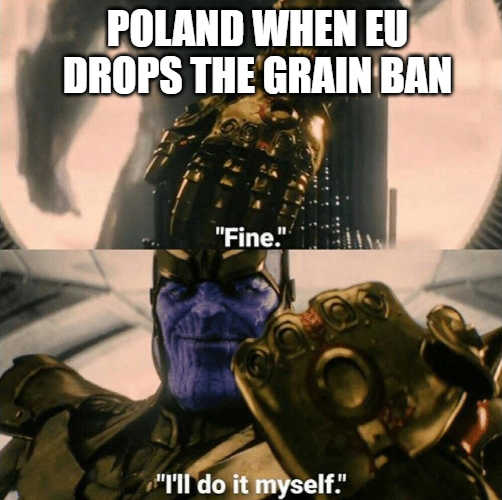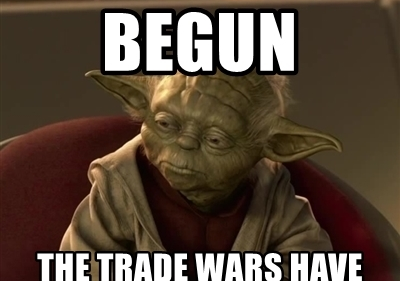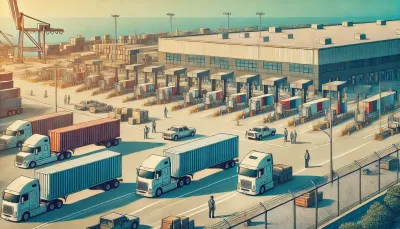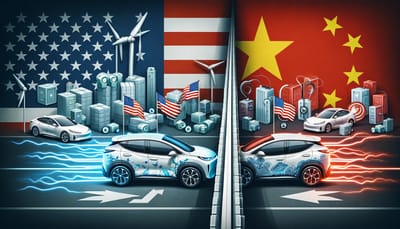Is the Ukraine grain ban illegal?

Hi this is ZipLaw! We explain how news stories impact law firms so you can stand out in your applications.
Here’s what we’re serving today:
- Is the Ukraine grain ban illegal? 🇺🇦
- Did the EU start a trade war? 🇪🇺
- Rent prices go up (loads) 🏘️
Are you new here? Get free emails to your inbox.
Is the Ukraine grain ban illegal?

In Short: Ukraine wants to sell grain to the EU, but some countries are throwing shade (and bans) to protect their own producers. It's a continental food fight.
Here's all you need to know.
1. The Grainy Situation
Ukraine, the breadbasket of Europe, wants to sell its grain to its EU neighbours. But Poland, Slovakia, and Hungary are like, "Nah, we're good." Why? They're worried about their market prices dropping faster than my Wi-Fi connection during a Zoom call. Ukraine's now threatening to ban stuff like Polish apples and Hungarian cars.
2. The EU's Mixed Signals
The EU initially had a ban on Ukrainian grain but then decided to lift it. But Poland, Slovakia, and Hungary went rogue and kept their bans. France is urging the EU to step in.

3. Polish Politics
Poland's got an election coming up, and the ruling party is trying to keep its farmer base happy. So, they're extending the grain ban, even though the EU's not on board. Meanwhile, Romania's playing it cool with a temporary freeze, and Bulgaria? They're having full-blown tractor protests.
⚖️ How does this impact Law Firms?
International Trade and Dispute Resolution:
- WTO Complaints and Arbitration: Lawyers specialising in international trade will be heavily involved in preparing and presenting Ukraine's complaint to the World Trade Organization (WTO) against Poland, Slovakia, and Hungary. This will involve gathering evidence, drafting legal arguments, and representing Ukraine in any subsequent arbitration or dispute resolution proceedings.
- Bilateral Trade Negotiations: Given the unilateral decisions by some EU members, there will be a need for lawyers to assist in bilateral trade negotiations between Ukraine and individual EU countries. This could involve drafting and reviewing agreements, ensuring compliance with international trade laws, and advising on potential retaliatory measures.
EU Law and Regulatory Compliance:
- Assessment of EU Directives: Lawyers with expertise in EU law will be required to assess the legality of the unilateral decisions by Poland, Slovakia, and Hungary in light of EU directives and regulations. They will need to determine whether these bans are in violation of the EU's single market principles.
- Advisory on EU Regulations: Clients, especially those involved in the grain trade, will seek advice on how to navigate the complex web of EU regulations and directives. Lawyers will provide guidance on compliance, potential legal challenges, and strategies to mitigate risks.
Agricultural and Environmental:
- Assessment of Agricultural Trade Restrictions: Lawyers in this department will be tasked with understanding and interpreting the nuances of agricultural trade restrictions. They'll delve into the specifics of how bans on grain, sunflower oil, and other products align with both domestic and international agricultural standards and regulations.
- Environmental Impact Assessments: Given the potential for increased storage or alternative disposal of grains due to the bans, there might be environmental implications. Lawyers will be involved in conducting or overseeing environmental impact assessments, ensuring that any changes in grain storage or transportation methods comply with environmental laws and standards.
Trend Scoping for Law Firms
This situation shows the increasing mixing of international trade, EU regulations, and political considerations. Law firms will interpret this as a signal to bolster their interdisciplinary approach, combining expertise from different legal departments to provide comprehensive advice to clients.
The trend suggests a growing demand for lawyers who not only understand the intricacies of trade and regulatory compliance but also the political landscapes of countries involved. Firms might also consider enhancing their geopolitical risk assessment capabilities, given the potential for political events to significantly impact international trade dynamics.
Did the EU start a trade war?

In Short: The EU's investigating if China's getting sneaky financial boosts for their EVs, which could spark a global tariff tiff.
Let's break it down.
1. The EU's Suspicions
The EU's like that one friend who's always suspicious of everyone's intentions. They're thinking, "Hey, why are Chinese EVs suddenly everywhere? Are they getting some secret pocket money?" So, they've launched a detective mission to find out if China's getting sneaky financial support for their EVs.
The probe, which could take up to nine months, will probably lead to new EU tariffs on Chinese EV imports and hit big non-European automakers like Tesla, which produce cars in China for export to the bloc. Some say this could be close to the 27.5% level already imposed by the US on Chinese EVs.

2. Why could this be a big problem?
Imagine you're at a party, and someone starts a food fight. Soon, everyone's throwing food. That's what might happen here. If the EU slaps tariffs on Chinese EVs, other countries might follow suit, fearing a flood of these cars in their markets.
Plus, experts warned that any protections offered to domestic EU companies may not solve an innovation gap with China. This is the real big problem that threatens to worsen without more focus and investment on innovation rather than protecting companies playing catch up.
3. The Bigger Picture
This isn't just about cars. The real issue? Countries are rethinking where they get their stuff from, especially after COVID-19 messed up global supply chains. Everyone's trying to be more self-reliant, and a common way to do that is to build stuff locally. Problem is that leads to more trade barriers and potential economic chaos.

But here's the twist: Europe's not just worried about China. They've also got an eye on the US, who's been flexing its EV muscles for a while. And China? They're not just sitting back. They're warning Europe that messing with their EVs could backfire big time.
⚖️ How does this impact Law Firms?
Trade and International:
- Trade Dispute Resolution: Lawyers in this department will be actively involved in advising and representing the EU or Chinese companies in potential trade disputes. Given the possibility of the EU imposing tariffs on Chinese EVs, there's a likelihood of challenges at the World Trade Organization (WTO) or other international trade forums.
- Advisory on Tariffs and Trade Barriers: As the EU considers imposing tariffs, lawyers will be advising clients on the implications of these tariffs, potential exemptions, and how to navigate the changing trade landscape.
Corporate and Commercial:
- Supply Chain Restructuring: With the potential for trade barriers and tariffs, companies might look to restructure their supply chains. Lawyers will be advising on contract renegotiations, potential terminations, and the establishment of new business relationships to circumvent trade barriers.
- Mergers and Acquisitions: As the market dynamics shift, there may be an uptick in M&A activity. Companies might look to acquire or merge with European entities to bypass tariffs or to strengthen their market position. Lawyers will be involved in due diligence, contract drafting, and regulatory compliance related to these transactions.
Regulatory and Compliance:
- Compliance with New Trade Regulations: As new tariffs or trade barriers are introduced, lawyers will be advising companies on how to remain compliant with these regulations, ensuring that they don't inadvertently breach any new rules.
- Risk Assessment and Management: Given the potential for retaliatory measures from China and the evolving trade landscape, lawyers will be advising companies on potential risks and strategies to manage these risks, including potential regulatory changes in China that could impact European companies operating there.
Rents vs House Prices
UK rents are skyrocketing like they've had too much caffeine. We're talking a 12% jump in just a year. The average renter is now shelling out £1,300 a month on rent. That's £140 more than last year.

Now, on the flip side, house prices are acting like they've just been ghosted. They went up by a measly 0.4% in September. Historically, they've risen by 0.6% during this month.

Why the drama? The Bank of England's been playing around with interest rates, trying to control inflation. But it's like trying to control a toddler with a sugar rush. The result? More people are renting, and landlords are selling, causing a rental shortage and pushing up prices.
The housing market's mood swings might just give Prime Minister Rishi Sunak some sleepless nights. With a potential election around the corner, a shaky housing market might make homeowners feel like they've lost their golden ticket.
👀 ZIPMEMES

Don't forget...
🙏 Our work is reader-supported. You can get a membership for cheap!
🎥 Follow us on Instagram here or TikTok here.
📫 Forward this to a friend and tell them to subscribe (hint: it's here).






